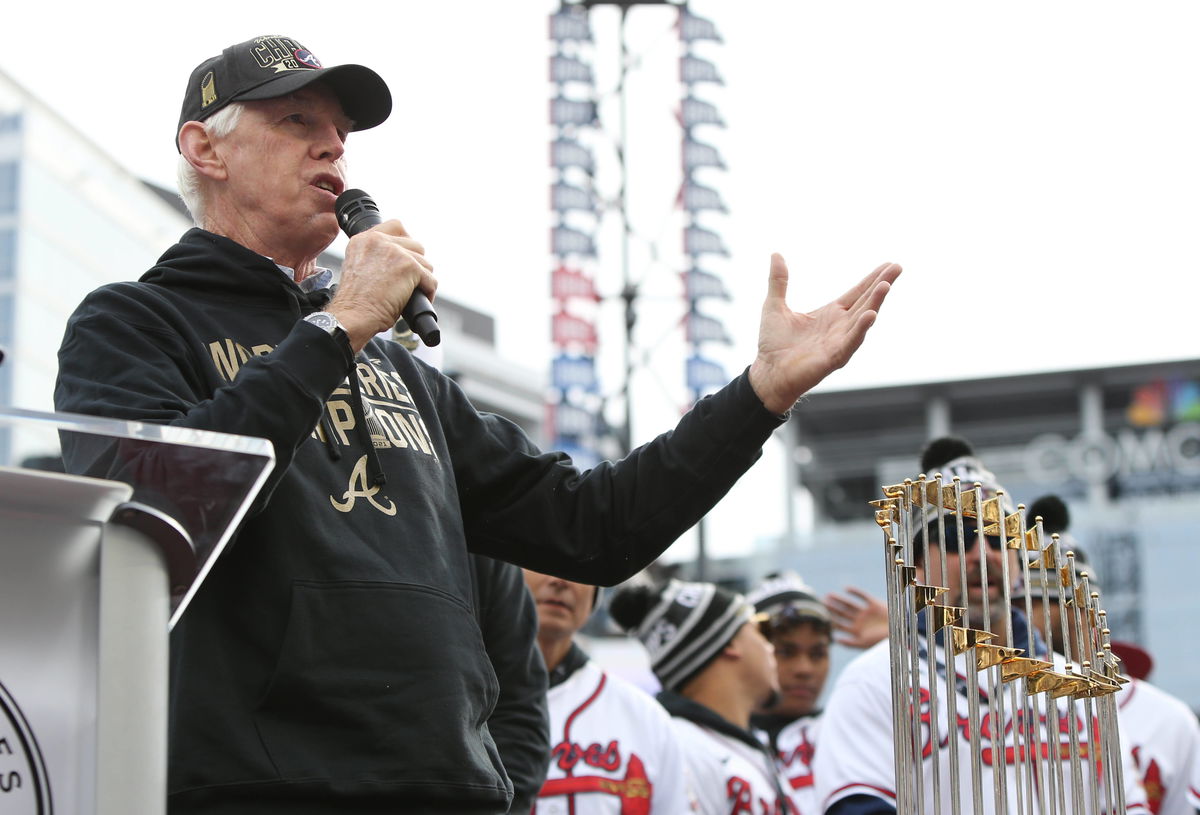
USA Today via Reuters
MLB, Baseball Herren, USA World Series-Atlanta Braves Championship Parade, Nov 5, 2021 Atlanta, GA, USA Atlanta Braves chairman Terry McGuirk speaks during the World Series championship rally at Truist Park. Mandatory Credit: Brett Davis-USA TODAY Sports, 05.11.2021 15:39:15, 17099105, MLB, NPStrans, Atlanta Braves, Truist Park, TopPic, World Series PUBLICATIONxINxGERxSUIxAUTxONLY Copyright: xBrettxDavisx 17099105

USA Today via Reuters
MLB, Baseball Herren, USA World Series-Atlanta Braves Championship Parade, Nov 5, 2021 Atlanta, GA, USA Atlanta Braves chairman Terry McGuirk speaks during the World Series championship rally at Truist Park. Mandatory Credit: Brett Davis-USA TODAY Sports, 05.11.2021 15:39:15, 17099105, MLB, NPStrans, Atlanta Braves, Truist Park, TopPic, World Series PUBLICATIONxINxGERxSUIxAUTxONLY Copyright: xBrettxDavisx 17099105
For a team 18 games under .500, the Atlanta Braves still sound remarkably confident. Not in the standings, but in their spreadsheets. While fans stew over a season that collapsed by May, the mood in Thursday’s investor call was upbeat. And the man leading the charge? Chairman Terry McGuirk, who didn’t mince words about why the Braves stayed mostly on the sidelines at the deadline.
Watch What’s Trending Now!
The Braves, after all, didn’t lack resources; they lacked options, as McGuirk claimed. The team could have added payroll, shipped out expiring contracts, or even made bold moves toward 2026. But instead, they did almost nothing. And now, they are saying that’s because the market failed them, not the other way around.
“We had dry powder in our arsenal for the trade deadline this year,” McGuirk said. “Our threshold for investment was that it either needed to move us toward a playoff position this year, or help us dramatically in ’26. And our limited activity reflected the inability of the market to meet those two requirements.”
ADVERTISEMENT
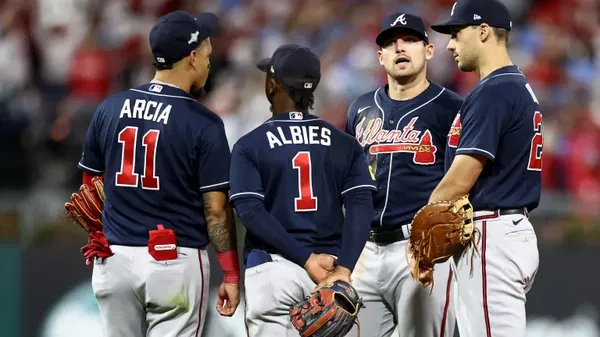
ADVERTISEMENT
Now, that explanation may work in a boardroom, but in the bleachers, it’s a tougher sell. The Braves didn’t move struggling veterans like Marcell Ozuna or Raisel Iglesias. They didn’t lean into youth, either. What fans got instead was a pair of veteran arms, Carlos Carrasco and Erick Fedde.
And that is when the business is booming. The Braves brought in $359.2 million through the first half of 2025, a $38.5 million increase from the same period last year. They hosted the All-Star Game, sold out big nights at Truist Park, and saw real estate revenue at The Battery spike. McGuirk called the model “what every MLB team is chasing.”
ADVERTISEMENT
But even with revenue booming, there’s no masking what’s unfolding in real time. The financial success story faces a looming threat as the team’s poor performance has begun to erode fan attendance. Braves President Derek Schiller has acknowledged that a downturn is expected, pointing directly to the team’s struggles on the field and the seasonal effect of the school calendar as key factors.
For this season now, the Braves’ playoff chances are minimal, which is why they have shifted their entire focus to 2026.
ADVERTISEMENT
Atlanta Braves are betting it all on 2026
The Braves aren’t hiding their plan; they’ve already circled next spring as the real reset. Chairman Terry McGuirk has pointed to a fully healthy rotation, a returning Ronald Acuña Jr., and a payroll that may climb higher than its current status.
“We’re disappointed with the year. There’s some underperformance, but the majority of it is injuries and missing players. Everyone is back for spring training ’26,” he said, before further adding, “I think we will line up in that kind of a mode again next spring, and we will take a very hard look at the team and at everything that contributes to winning and losing during this offseason.”
Top Stories
Max Scherzer’s “Unfinished Business” Sends Clear Signal to Blue Jays After Honest Plea to All 30 MLB Teams
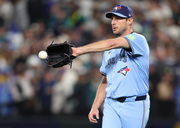
Latest Yankees Crisis Takes Turn for Worse as Hal Steinbrenner Loses 3 Players in One Single Day

Rift Cracks Open in Blue Jays as Real Reason Behind Bo Bichette’s Exit Emerges, per Insider
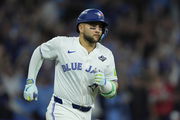
Bronx Nation Reacts as Juan Soto Left Missing his Yankees Glory Alongside Aaron Judge
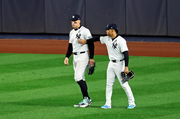
Who Are Kyle Tucker’s Parents? All about Mike Tucker and Lisa Fernandez

On paper, that vision has weight. But in the stands and the standings, it feels like asking fans to sit tight for another eight months.
ADVERTISEMENT
That’s a dangerous gamble in a market where patience may run out fast. Waiting for 2026 means living through a second half where the product on the field feels more like a placeholder. And if 2026 arrives with the same hesitancy that defined this year’s trade deadline, the promise will ring hollow.
The Braves have the resources, the market, and the infrastructure to turn things around, but betting it all on next year requires more than a healthy roster. It demands action, urgency, and a reason for fans to believe the front office’s patience is strategic, not stagnant.
ADVERTISEMENT
ADVERTISEMENT
ADVERTISEMENT